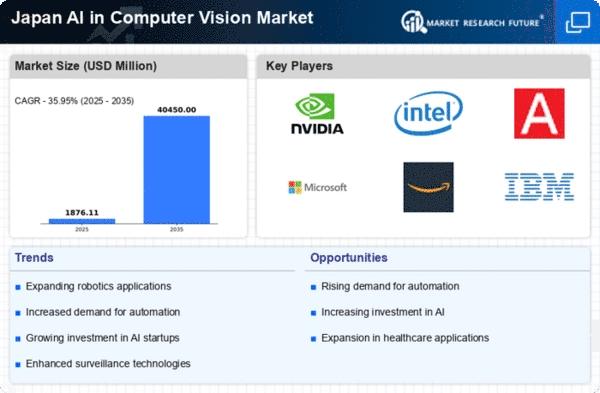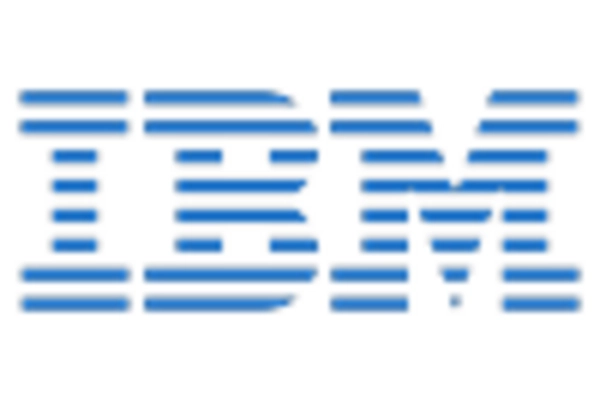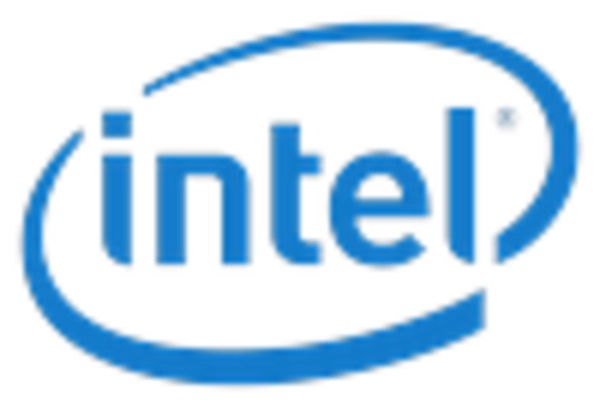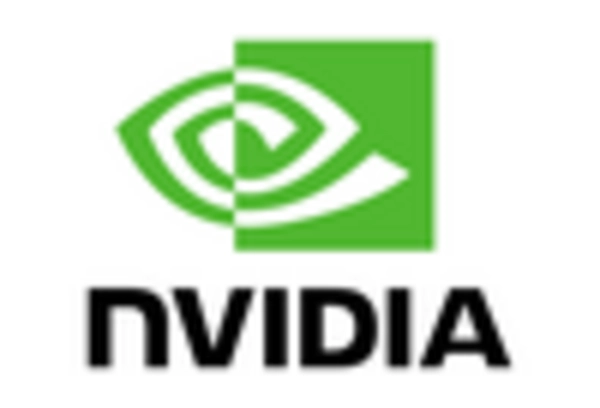Rising Demand for Automation
The ai in-computer-vision market in Japan is experiencing a notable surge in demand for automation across various sectors. Industries such as manufacturing and logistics are increasingly integrating AI-driven computer vision technologies to enhance operational efficiency. This trend is driven by the need to reduce labor costs and improve accuracy in processes such as quality control and inventory management. According to recent data, the automation market in Japan is projected to grow at a CAGR of 8.5% from 2025 to 2030, indicating a robust appetite for innovative solutions. As companies seek to streamline operations, the ai in-computer-vision market is likely to benefit significantly from this shift towards automation, positioning itself as a critical component in the modernization of industrial practices.
Integration with IoT Technologies
The convergence of ai in-computer-vision market with Internet of Things (IoT) technologies is creating new opportunities for innovation in Japan. As IoT devices proliferate, the need for intelligent image processing and analysis becomes increasingly critical. This integration allows for enhanced data collection and real-time analysis, enabling smarter decision-making across various applications, including smart cities and industrial automation. The IoT market in Japan is projected to grow to $20 billion by 2027, suggesting a fertile ground for the ai in-computer-vision market to thrive. By leveraging IoT capabilities, companies can develop more sophisticated computer vision applications that improve operational efficiency and customer experiences, thereby driving further growth in the sector.
Supportive Government Initiatives
The Japanese government is actively promoting the adoption of AI technologies, including those in the ai in-computer-vision market, through various initiatives and funding programs. These efforts aim to bolster the country's technological capabilities and enhance competitiveness on a global scale. For instance, the government has allocated substantial budgets for research and development in AI, with a focus on applications that can drive economic growth. This supportive environment is likely to encourage investments in the ai in-computer-vision market, as companies seek to align with national priorities and leverage available resources. As a result, the market may experience accelerated growth, driven by both public and private sector collaboration.
Growing Interest in Augmented Reality
The ai in-computer-vision market is also benefiting from the rising interest in augmented reality (AR) applications in Japan. Industries such as retail, gaming, and education are increasingly adopting AR technologies that rely on advanced computer vision algorithms to create immersive experiences. The AR market in Japan is anticipated to reach $3 billion by 2025, indicating a strong potential for growth. As businesses seek to engage customers through innovative experiences, the demand for ai-driven computer vision solutions that support AR functionalities is likely to increase. This trend not only enhances user engagement but also opens new avenues for marketing and product visualization, further propelling the ai in-computer-vision market.
Enhancements in Security and Surveillance
The ai in-computer-vision market is witnessing increased investments in security and surveillance applications in Japan. With rising concerns over public safety and crime prevention, organizations are deploying advanced AI-based surveillance systems that utilize computer vision for real-time monitoring and threat detection. The market for security systems in Japan is expected to reach approximately $5 billion by 2026, reflecting a growing recognition of the importance of safety in urban environments. These systems not only enhance security but also provide valuable data analytics, which can be leveraged for urban planning and resource allocation. Consequently, the demand for sophisticated ai in-computer-vision solutions is likely to expand as businesses and government entities prioritize safety and efficiency.

















Leave a Comment